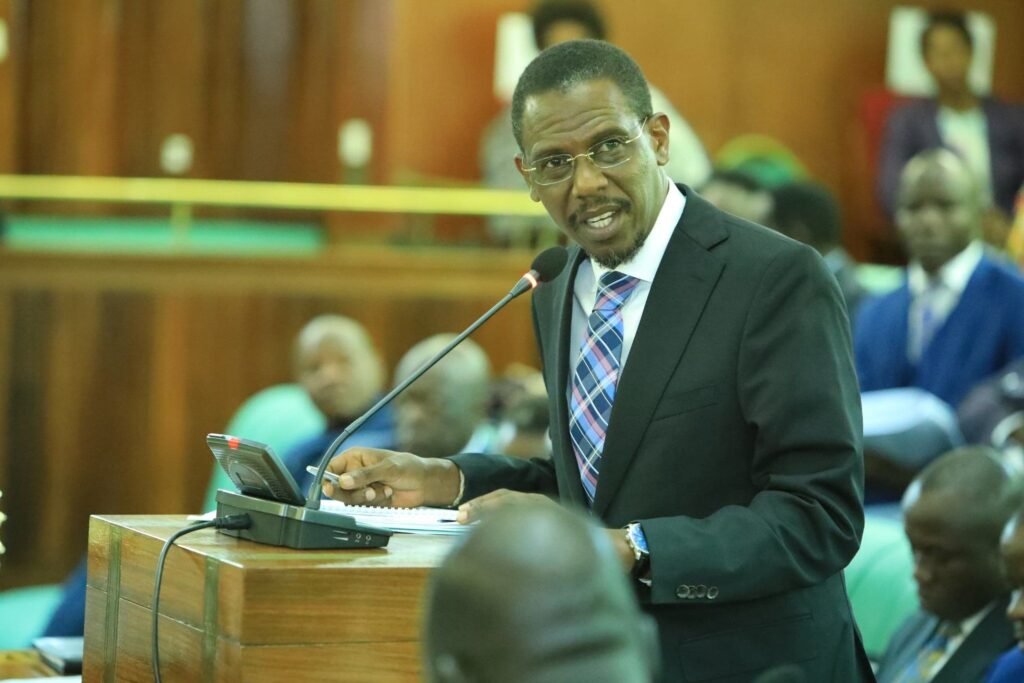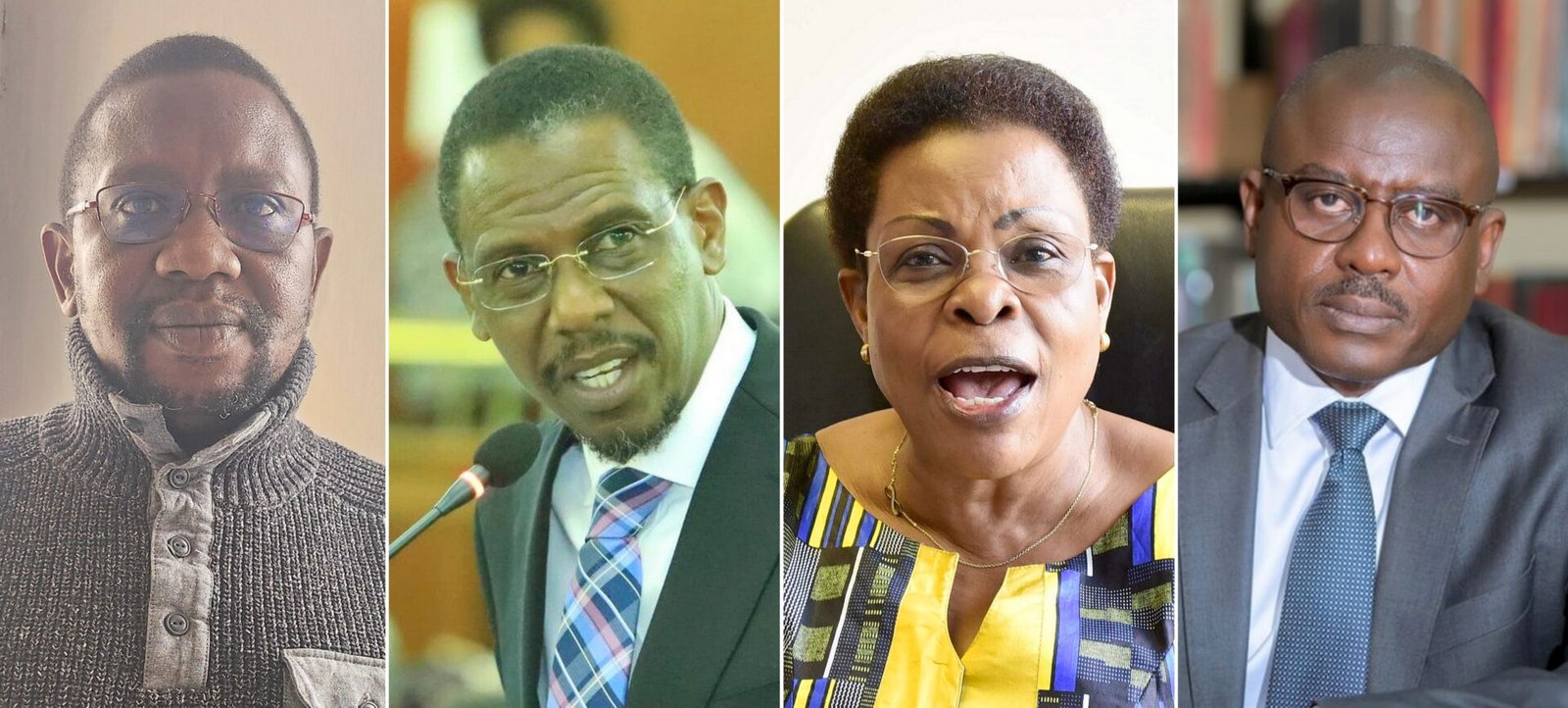KAMPALA, UGANDA — The delicate balance between the public’s right to know and the State’s control over information has once again been thrust into the spotlight in Uganda, following a December 2024 judgment by the Constitutional Court.
Their core contention: that these provisions erected undue barriers to public scrutiny of the declared assets of Uganda’s leaders, a cornerstone in the fight against corruption and a fundamental aspect of constitutional rights.
The case, brought forth by the Hub for Investigative Media, a Non-Governmental Organization (NGO) dedicated to promoting access to information, and its Executive Director, seasoned investigative journalist Edward Ronald Sekyewa, challenged specific provisions within the Leadership Code (Amendment) Act 2017.
The heart of the legal battle lay in Section 7(2) and (9) of the amended Leadership Code, which mandated a non-refundable fee, capped at 25 currency points (equivalent to UGX 500,000, though the prescribed fee was UGX 200,000), for any individual seeking to access a leader’s asset declaration.

The petitioners argued vehemently that this financial prerequisite effectively disenfranchised the average Ugandan citizen, transforming a constitutionally guaranteed right into a privilege reserved for the affluent.
Their legal submissions, referencing Article 41(1) of the Constitution which guarantees the right of access to information held by the State, underscored the principle that such access should not be commoditized.

They drew parallels with international best practices, noting that in countries like Nigeria and Tanzania, fees associated with asset declaration access are typically limited to covering the cost of duplication, not the mere act of seeking information.
The court’s deliberation and divided outcome
In his judgment delivered on 12th December 2024, Justice Oscar John Kihika, while acknowledging the constitutional right to access information, ultimately sided with the Attorney General’s defense of the access fee.
The court reasoned that the prescribed charge applied uniformly to all individuals seeking the information and did not constitute discrimination based on economic standing or any other prohibited grounds outlined in Article 21 of the Constitution.
Justice Kihika drew an analogy to court fees and payments required for accessing certified documents from bodies like the Uganda National Examinations Board (UNEB), suggesting that such charges are a common mechanism for public institutions to sustain their operations.
However, this rationale has sparked considerable debate among legal analysts and civil society advocates. Critics argue that while cost recovery might be a legitimate concern, the prescribed UGX 200,000 fee represents a significant financial hurdle for the majority of Ugandans, whose average household monthly expenditure was estimated at UGX 351,600 during the period relevant to the petition.

Although the Ruling agreed with the petitioners that the declared assets should be public information and accessible to the public, the issue of access fees effectively places transparency out of reach for many, potentially undermining the very purpose of asset declarations – to foster public trust and enable citizens to hold their leaders accountable.
“It is hereby ordered that the Inspectorate of Government grant access to declarations submitted under the provisions of the Leadership Code Act subject to the requirements under Article 41 (1) of the Constitution,” the Ruling stated.
The court’s decision, while legally grounded in the principle of non-discrimination in application, arguably overlooks the discriminatory effect based on economic reality.
A symptom of a wider challenge: The state of access to information in Uganda
The Leadership Code case is not an isolated incident but rather a significant marker in the ongoing struggle for meaningful access to information in Uganda.
While Article 41 of the 1995 Constitution lays the groundwork for this right, and the Access to Information Act (ATIA) of 2005 aimed to operationalize it, the practical realization of this fundamental freedom remains fraught with challenges.
Reports from organizations like the Africa Freedom of Information Centre (AFIC) consistently highlight a significant gap between the legal framework and the lived experience of citizens and journalists seeking information.
Bureaucratic hurdles, a pervasive culture of secrecy within some government entities, and a lack of proactive disclosure of information continue to impede access.
Furthermore, a lack of public awareness regarding the ATIA and its provisions, coupled with a reluctance by some officials to comply, further exacerbates the problem.
Instances of information requests being ignored, unduly delayed, or outright denied are frequently reported, often hindering crucial investigative journalism and public oversight.
The role of the Leadership Code (Amendment) Act, 2021: A step forward?
The Leadership Code (Amendment) Act, 2021, which superseded the 2017 legislation on certain aspects, represents a more recent attempt to strengthen the accountability framework for public officials.
It mandates more frequent and detailed declarations of income, assets, and liabilities to the Inspector General of Government (IGG).
Notably, it also includes provisions encouraging public participation by allowing citizens to provide information to the IGG if they have reason to believe a leader’s declaration is inaccurate.

However, the issue of public access to these declarations remains a critical point of contention. While the 2021 Act retains the principle of public access, the financial implications highlighted in the recent court case continue to cast a shadow over its effectiveness in empowering ordinary citizens.
The fundamental question persists: can a system truly promote transparency if the cost of accessing the very information designed to ensure it is prohibitive for a significant portion of the population?
Looking ahead: The unfolding implications and the path forward
The Constitutional Court’s ruling on the Leadership Code access fees has far-reaching implications for the future of transparency and accountability in Uganda.
While the legal challenge to the fee was unsuccessful, the case has undoubtedly amplified public discourse on the importance of accessible information.
Civil society organizations and media advocacy groups are likely to continue their efforts to push for more affordable and readily available access to asset declarations and other crucial government information.
Potential avenues for future action could include advocating for a revision of the Leadership Code regulations to significantly reduce or eliminate the access fee, pushing for greater proactive disclosure of information by government agencies, and conducting public awareness campaigns to educate citizens about their right to access information and the mechanisms available under the ATIA.

Legal challenges based on the principle of the right to information outweighing the need for cost recovery for such fundamental documents might also be considered.
Ultimately, the quest to unlock Uganda’s secrets and foster a truly transparent and accountable governance system remains an ongoing process.
The recent court ruling serves as a stark reminder of the persistent challenges and the crucial need for continued advocacy and vigilance to ensure that the right to know is not just enshrined in law but is a tangible reality for all Ugandan citizens.
The price of opacity, many argue, far outweighs any perceived financial benefit of restricting access to information that is vital for maintaining public trust and combating corruption.

